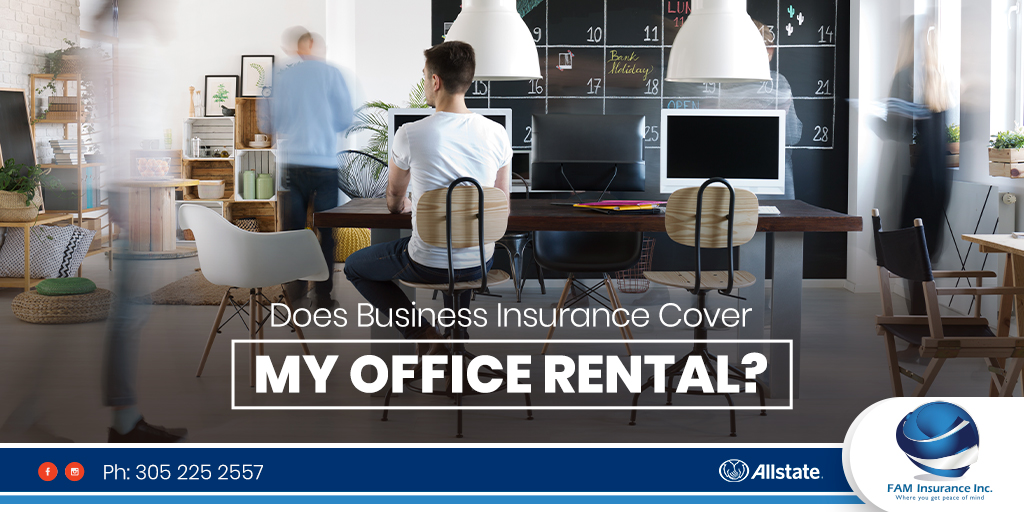If you’re renting office space for your company, having your own business insurance policy is a must. Even though the property owner or landlord is responsible for having insurance on the physical building, business insurance helps protect belongings and mishaps that are your responsibility
Plus, “More and more frequently, landlords are requiring insurance from their commercial tenants. Often they won’t rent to you unless they have proof that you have a business insurance policy.”
Depending on the type of business you run, Worters says a standard business owners policy (BOP) might be a good starting point. It typically includes property, liability and business interruption insurance.
Typical Coverages in a Business Owners Policy
Property Coverage: For Your Business’s Belongings.
Business property coverage may reimburse you if your company’s material goods are damaged during a covered loss such as theft or a fire, explains Worters.
For instance, while your landlord’s policy may cover fire damage to the building itself, your insurance provider could step in to cover your company’s damaged computers, furniture, phone systems, employees’ belongings and more, she says.
If your office was the target of a break-in, belongings that are stolen or damaged would typically be covered by your business insurance.
The building owner’s insurance would only cover damage to the physical building, such as broken windows, doors, or locks, says Worters.
Check your lease to see what you might be responsible for with regards to building damage, some landlords require you to be responsible for building glass, any modifications you have done to the inside of your space and even the heating or air conditioning units.
“If there was a hailstorm that did damage to the roof or blew out windows of the office building, that would fall under the purview of the owner,” says Worters. The building owner’s insurance — not your business’s — would be responsible for the damages.
Liability Coverage: For Your Business’s Legal Protection.
Liability coverage is the traditional “slip and fall” insurance with which most business owners are familiar.
If a visiting customer tripped and broke her ankle in your office, rather than a common area of the building, the liability coverage on your BOP could reimburse your customer for her medical bills, Worters explains.
Liability coverage could also pay for legal costs or damages from a lawsuit if the injury was proven to be the result of your negligence. Since the fall occurred in your rental office, your landlord’s insurance would not be involved, Worters says.
Your liability insurance may also reimburse you if you or your employees damage the space you’re renting and are found financially responsible for repairs.
Business Interruption Coverage: For Your Business’s Earnings After A Loss.
Business interruption coverage helps pay for lost income and additional expenses you may incur if your business is affected by a covered risk.
Suppose a fire seriously damages your rented office and you need to temporarily relocate. However, some key clients don’t follow you to your temporary office and, therefore, your profits drop.
With business interruption coverage, your policy would typically reimburse your business for lost income after you deduct ongoing business expenses you would have had to pay anyway.
Depending on your policy, Worters says the “extra expense” portion of your business interruption coverage could also help you recoup costs like additional rent, plus the difference between your utility costs at your new office if they are higher.
The basic coverages in your business owners policy are a good start to helping protect your business. Depending on the kind of business you run, Worters says you might consider adding additional coverages to your policy. A business insurance agent can suggest coverage to help protect your business and its specific needs.
Trying to decide what insurance you need before you sign that office lease? Let an experienced FAM Insurance agent help you decide what will work best for your business.

